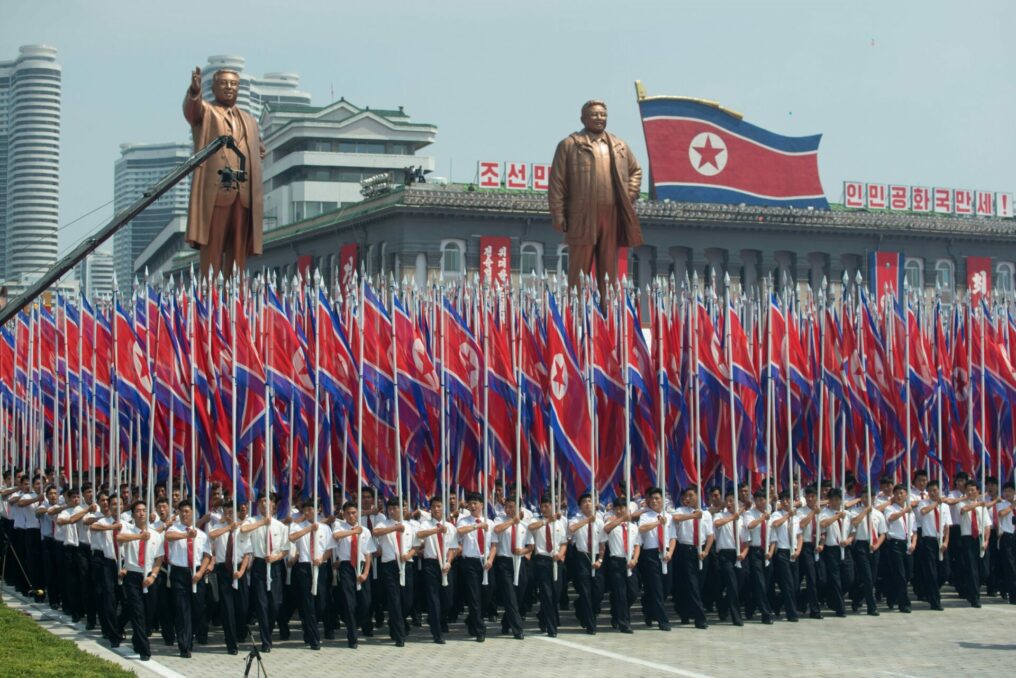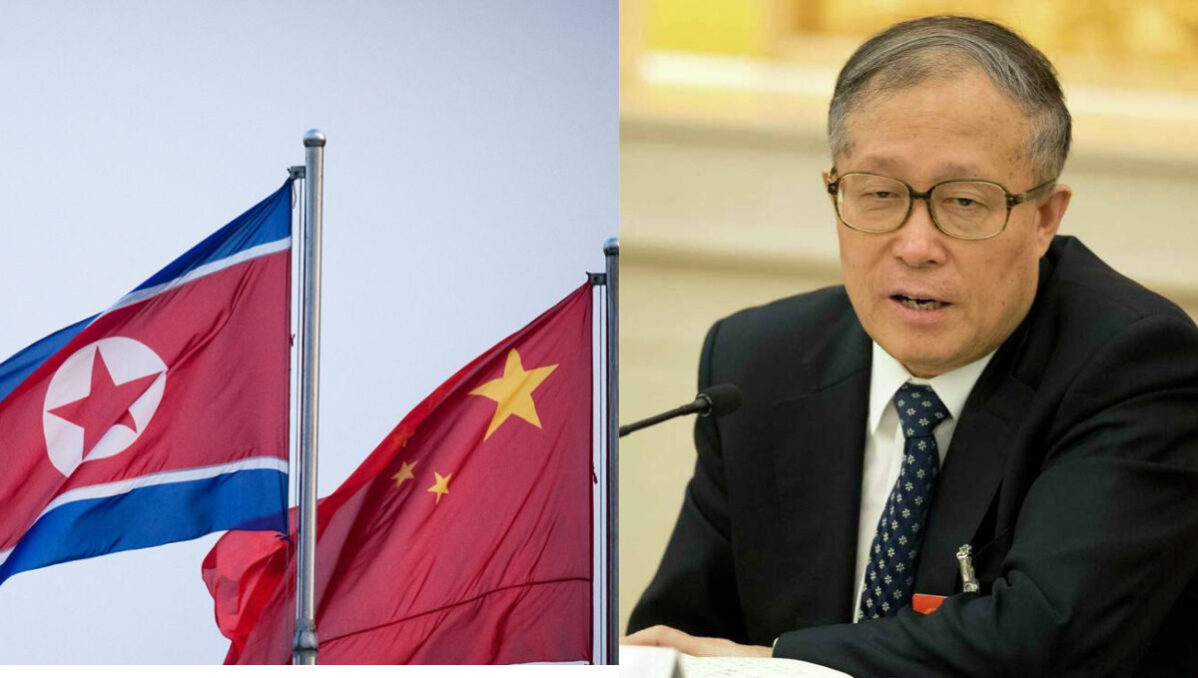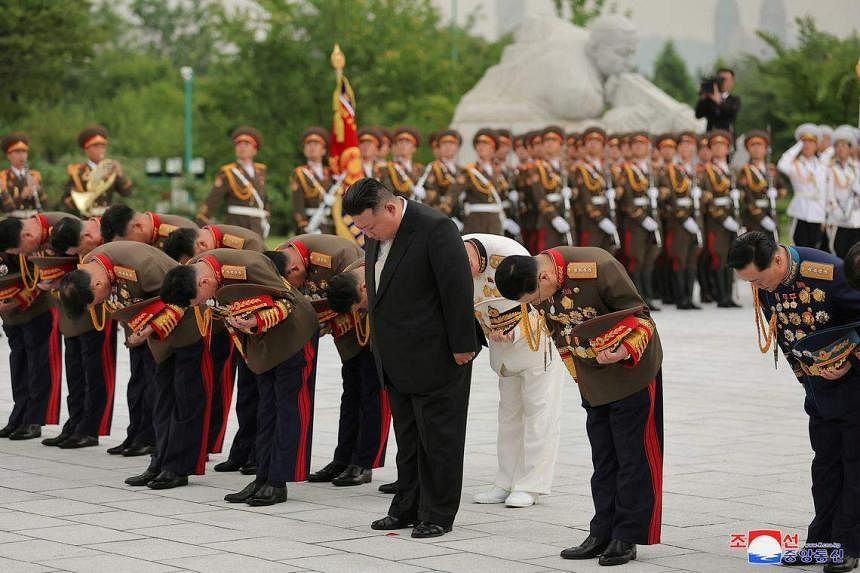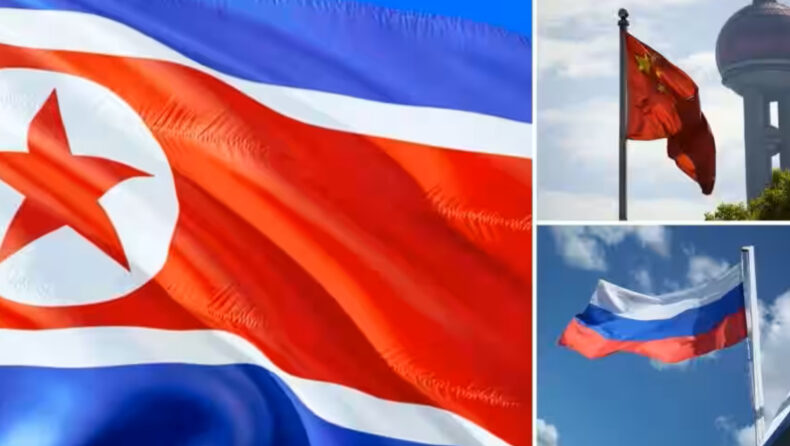This week, North Korea is preparing to celebrate the 70th anniversary of the Korean War armistice with the participation of high-level officials from Russia and China. The armistice, signed on July 27, 1953, marked the end of active hostilities in the conflict and is known as Victory Day in North Korea.

Caption: North Korea ‘Victory-Day’ Celebration Marked by large scale parade
The celebrations are anticipated to be grand, with satellite imagery indicating extensive preparations for a large-scale military parade, a customary feature of such events.
North Korea has kept its borders sealed during the COVID-19 pandemic, further isolating itself as one of the most secluded places globally. However, this historic occasion is now set to welcome its closest allies, suggesting a potential change in the country’s strict COVID-19 border restrictions, as reported by the Associated Press.
The distinguished guests, including Russian Defence Minister Sergei Shoigu and Chinese Communist Party Politburo member Li Hongzhong, are expected to witness one of North Korea’s signature events: a massive military parade showcasing its latest weaponry.
Russian Delegation’s Visit: Strengthening Military Ties
Over the years, Russia has maintained a strong alliance with Pyongyang, fostering friendly relations with North Korea.
Leader Kim Jong Un has openly expressed support for Moscow’s invasion of Ukraine and is rumoured to have provided rockets and missiles to aid in the conflict.
![On July 25th, Defence Minister[Russia] Sergei Shoigu received a warm welcome at an airport in Pyongyang.](https://asianatimes.com/wp-content/uploads/2023/10/130518110_b2fae60f682602b7fafc86011e338cf045641840.jpg.webp)
Caption: On July 25th, Defence Minister[Russia] Sergei Shoigu received a warm welcome at an airport in Pyongyang.
The upcoming visit by the Russian delegation, led by Sergei Shoigu, is likely to bolster military cooperation between the two nations, potentially leading to enhanced collaboration in areas such as artillery support, reconnaissance satellites, and nuclear submarines.
Anticipated COVID Restrictions Easing Amidst China’s Role
China’s role as a close neighbour and ally holds significant importance in North Korea’s affairs. The presence of the Chinese delegation at the celebrations highlights the strong bond between the two countries.

Caption: North Korea invites Chinese Official and Communist Party Politburo member Li Hongzhong.
Following the event, North Korea is expected to ease its COVID-19 restrictions and further enhance military cooperation with both Moscow and Beijing.
Geopolitical Implications in North Korea Amidst Tensions and Diplomacy
The situation in Pyongyang is under close scrutiny by South Korean and US intelligence agencies as the nation prepares for its anniversary celebrations. The presence of “people and equipment” in the capital is drawing attention, especially given the ongoing tensions between North Korea and the United States. Recent ballistic missile launches and a failed attempt to launch a military spy satellite have further added to the region’s instability.
China and Russia’s upcoming visit to the region will have broader implications for regional diplomacy. Despite stalled talks between Pyongyang and Seoul and Kim Jong Un’s push to advance weapons development, including tactical nuclear weapons, the interactions during the celebrations could have significant geopolitical implications.
An event commemorating the armistice of the Korean War in the presence of high-ranking Russian and Chinese officials marks a significant development in the post-pandemic era.
The potential easing of COVID-19 restrictions and increased military cooperation with the allies could have significant implications for regional stability and diplomatic relations.
Shuttle Diplomacy Resumes: North Korea-China Relations
Leader Kim Jong Un commenced the week’s commemorations with visits to a cemetery honouring Chinese soldiers who fought in the Fatherland Liberation War, as reported by state media KCNA on Wednesday.
Additionally, Kim visited the Fatherland Liberation War Martyrs Cemetery on Monday, where he praised the soldiers for their role in defeating U.S. imperialism.

Caption: As the nuclear-armed, reclusive state prepares for the upcoming Victory Day ceremony, Mr. Kim Jong Un’s visit to the cemetery takes place.
Despite international sanctions concerning North Korea’s missile and nuclear programs, both Moscow and Beijing, who voted to impose these sanctions, have become major trading partners with North Korea. In June, China’s exports to North Korea were eight times higher than the previous year. Beijing maintains that it “strictly” enforces U.N. sanctions on North Korea.
Both the ally nations have resisted recent attempts by the United States and some European nations to impose further sanctions on North Korea. The presence of these delegations from both allies may indicate a potential resumption of long-stalled diplomatic visits between nations.
According to a few analysts, North Korea’s participation in the upcoming Hangzhou Asian Games would mark a resumption of high-level ‘shuttle diplomacy’ between the two countries since the COVID-19 pandemic.












